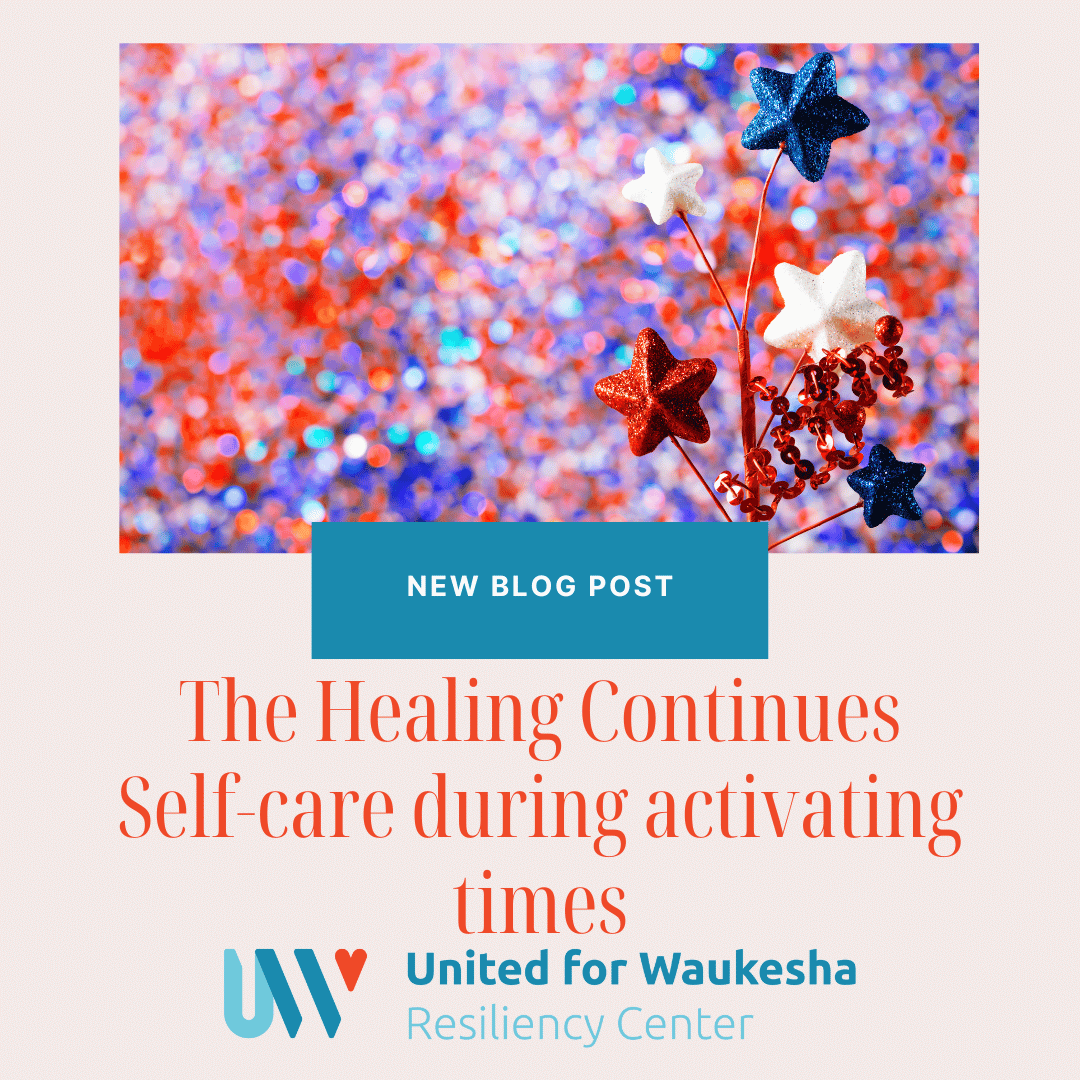Holidays can bring joy, fun traditions, and so many reasons to gather and celebrate
For our Waukesha community affected by the 11/21/21 Christmas parade tragedy, holidays like the Fourth of July can also bring complicated feelings and even trauma activations. Not everyone experiences this, but for those who do, it can be distressing. Knowing what to expect and ways to cope in advance may be helpful. Some common reactions include:
- Increased memories, thoughts, or dreams about the event
- Grief and Sadness
- Fear and Anxiety
- Irritability, Frustration, or Anger – even seemingly unrelated to the event
- Avoidance or Isolation
Everyone copes differently, but just recognizing and acknowledging these reactions without judgment can help us bear them more easily. See below for a variety of healthy coping mechanisms.
Grounding Techniques
Grounding techniques can help us in moments of high emotion to refocus on the present moment by attuning to the physical world, which regulates and calms the body’s fight-or-flight response. These can be especially helpful for those who find crowds or loud noises activating.
- Belly breathing – Place one hand on your belly and one on your chest. Breathe in and out deeply so that your belly moves up and down.
- Try a body scan meditation
- Place your hands in cold or warm water.
- Move your body – For a low-intensity option, tense and relax each muscle from toes to head or do some gentle yoga. For a higher-intensity option, running, dancing, and weightlifting help the body process cortisol, the stress hormone that builds up when we’re anxious and activated.
Distraction
Distraction can keep us from ruminating or getting stuck in a loop of negative thought patterns. While we don’t want to live in distraction mode all the time, we also cannot sit with our pain all the time, either. Some distraction can give your brain a break, allow necessary time to rest, and build positive associations.
- Spend an evening with a favorite movie, TV show, music, or book
- Travel someplace new
- Start a new holiday tradition
- Spend time with a friend
Connection and Reflection
Connection and reflection can provide us with social support and opportunities to make meaning from our experiences.
- Talk to a trusted person
- Write-and-Burn: Write a letter to the universe, to someone or something you have lost, to your past or future self – then tear it up, bury it, or burn it.
- Find a song that expresses your feelings
- Imagine your thoughts and feelings as clouds passing by in the sky or boats drifting on a river – external, without positive or negative connections
Healing is never linear, but it is possible to rebuild a new normal. For all of these coping tips, consider what works best for you. For further support and resources, see our website, unitedwaukesha.org; browse the National Mass Violence Victimization Resource Center (NMVVRC) website at nmvvrc.org; and visit us during our drop-in hours on Mondays, Tuesdays, and Wednesdays starting July 11.
Other resources
- 30 Grounding Techniques to Quiet Distressing Thoughts
- The Transcend Mobile App from NMVVRC provides coping strategies and skills for psychological recovery specifically geared toward survivors of mass violence.
- The Mood Meter App helps users gain awareness about their feelings and how to regulate them for greater well-being.
- “Recovery is not one line, it’s scribbles”: Interview with Columbine survivor Heather Martin

